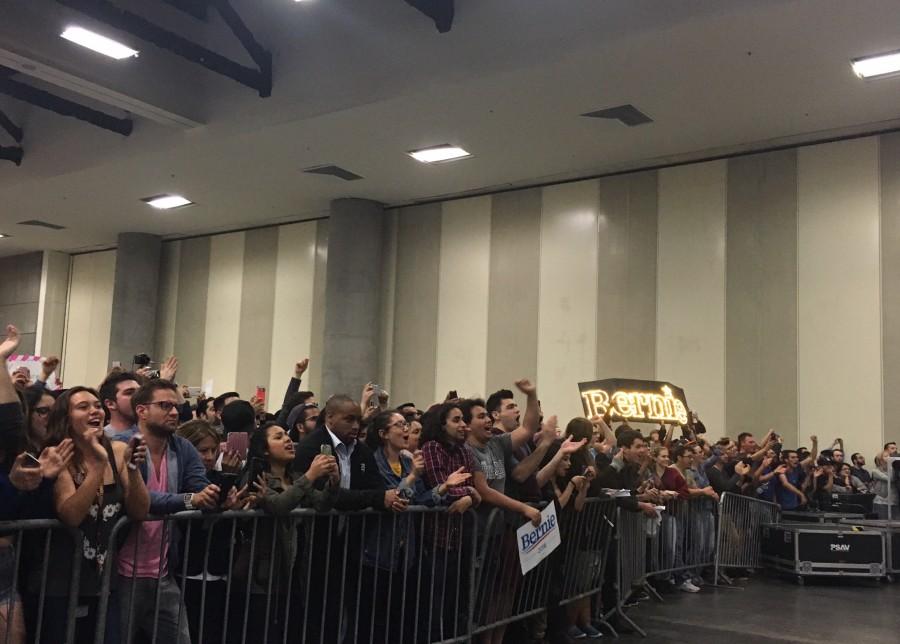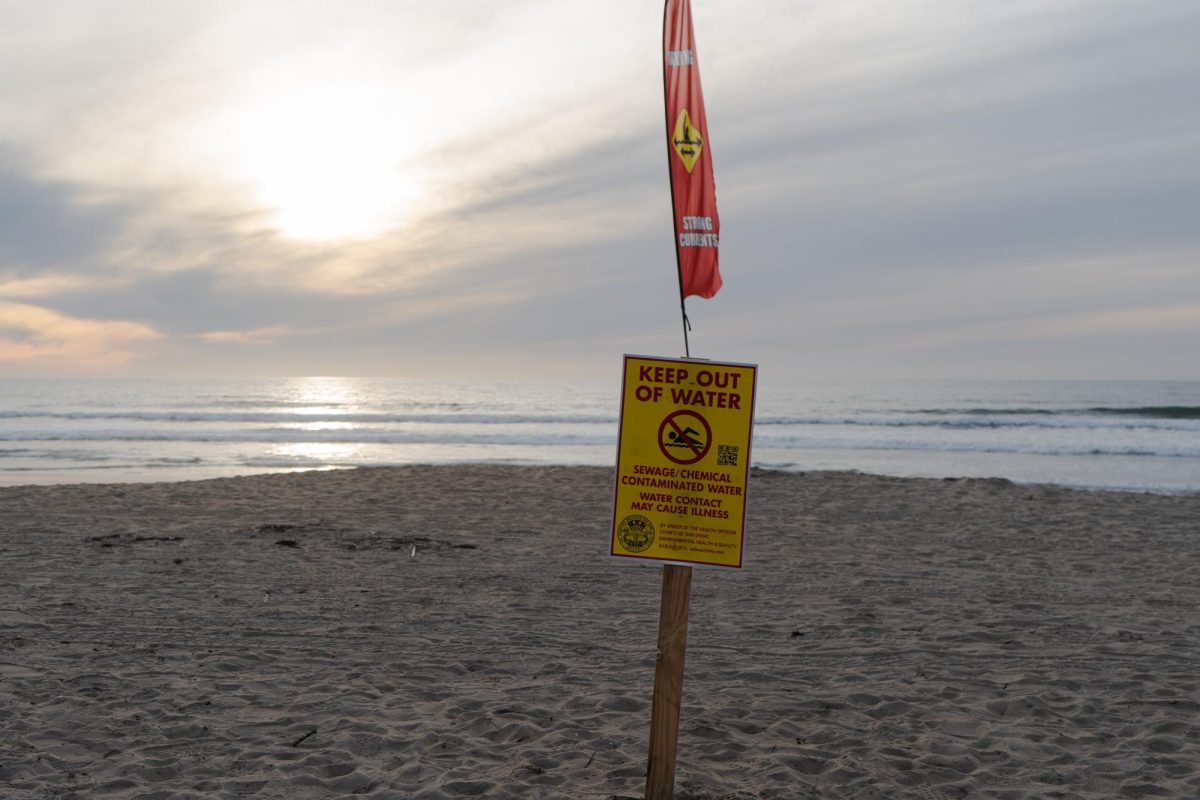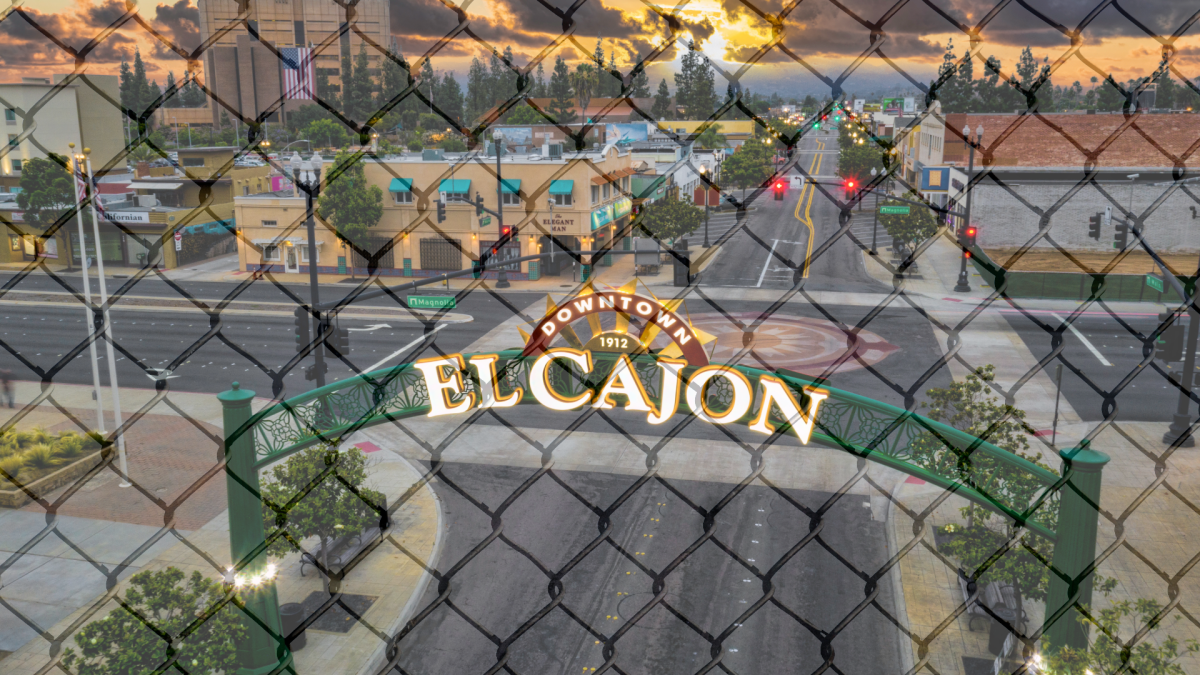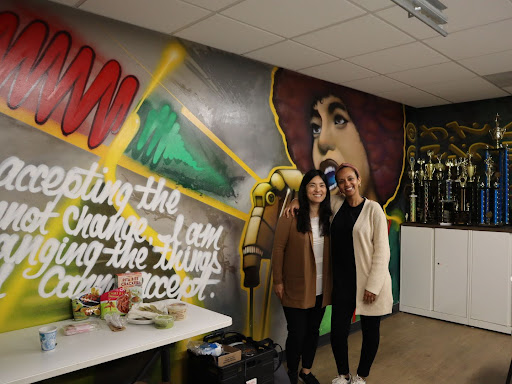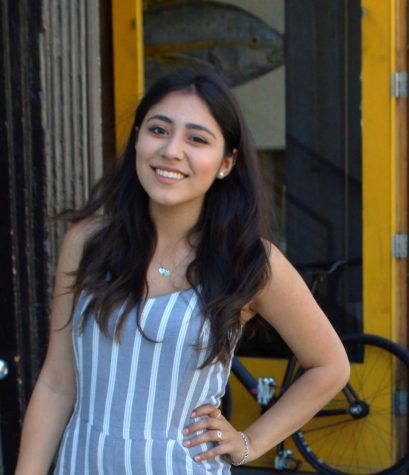Phrases such as “Feel the bern,” “Si se puede” and “Yuuuge” were shouted in support for Senator Bernie Sanders as he took the stage in the “A Future to Believe in” rally on March 22 at the San Diego Convention Center.
More than 10,000 San Diegans from all demographics stood in line for hours to participate, forcing the addition of two overflow rooms in order to accommodate more people.
“The range of demographics was so surprising,” said junior Sofia Hughes, president of Aztecs for Sanders. “Traditionally, when you think of Sanders, you think of young college-aged voters, but there were so many people from so many different groups including middle-aged people and a lot of minorities.”
Actress Rosario Dawson started off the rally and said she had been to the San Diego Convention Center many times but had never seen anything like this.
“Where are the young people? Where is the diversity? Where are people coming together under one umbrella with one vision for our future we can all dream and believe in?” she said. “Right here.”
Sanders spent most of his speech talking about issues surrounding groups such as immigrants, Muslims, students, women, African-Americans, Native Americans, veterans and gays. He referred to all of them as “brothers and sisters.”
One of the major issues he touched on was the minimum wage.
“This campaign is about creating an economy that works for all of us, not just the 1 percent,” he said.
He said his campaign also centers around limiting police brutality.
“Most police are honest and hardworking, but when an officer breaks a law, that officer must be held accountable,” he said.
Sanders then halted his speech to address the tragedy in Belgium and express his condolences to the people of Brussels.
Supporters held peace signs up following Sanders’ motion.
“We will stand with them, and together, we will crush and destroy ISIS,” he said.
He then shifted to women and said his campaign is about listening to and standing with those who are tired of working 70 cents a dollar for what men make.
Shortly after, “Si se puede” chants were hollered after Sanders said he would fight for immigration comprehensive reform and a pathway to citizenship.
“We unite families, not divide families. We will stop the deportations,” he said.
The crowd grew louder and cheering roared after Sanders expressed the need to fix and improve issues facing minority communities such as education systems and health care.
“We are going to change the national priorities of this country,” he said.
The final topics Sanders discussed were climate change and tuition among college students.
The possibility of free tuition in community colleges and public universities triggered enthusiasm from the audience.
“How does it happen when everybody told us we needed to get an education, we are leaving school in $20-50,000 in debt?” he said.
Sanders ended his speech by talking about the impact of California on the election.
“California will have a major role to play in taking this country forward,” he said. “If there is a large voter turnout, we will win here.”
Hughes said she knew a lot of people who took part in the rally including her lab instructor who ended class early to attend it.
Although many of the topics talked about had been heard before in past rallies and speeches, Sanders used a powerful tone that surprised supporters.
“(Sanders) came out a lot stronger than he has in the past,” Hughes said. “He hasn’t exactly been redescent on defeating ISIS before, but to hear him speak about it and get passionate and angry about it was really special. I think a lot of people reacted the same way I did.”
Sanders won Washington, Hawaii and Alaska on March 26, but Secretary Hillary Clinton has 1,712 delegates while Sanders has 1,011. The California primary will not be until June 7 and a candidate needs 2,383 to win the Democratic nomination.
“Revolution is about people going from coast to coast saying enough is enough,” Sanders said.




